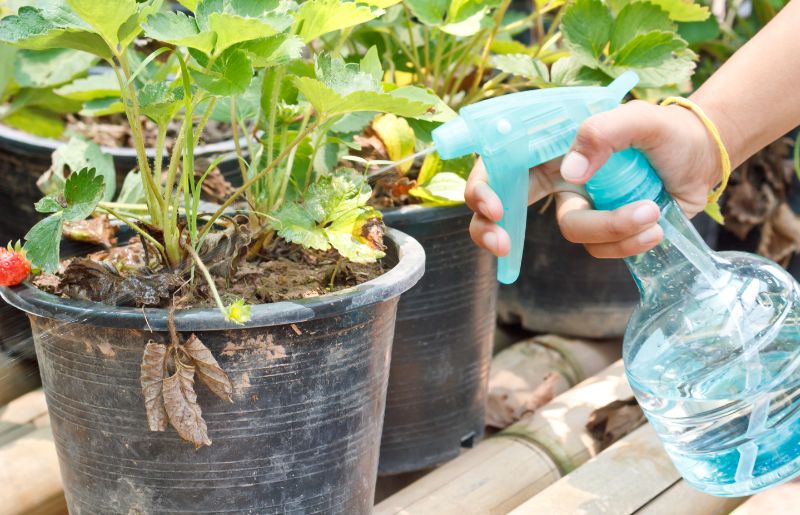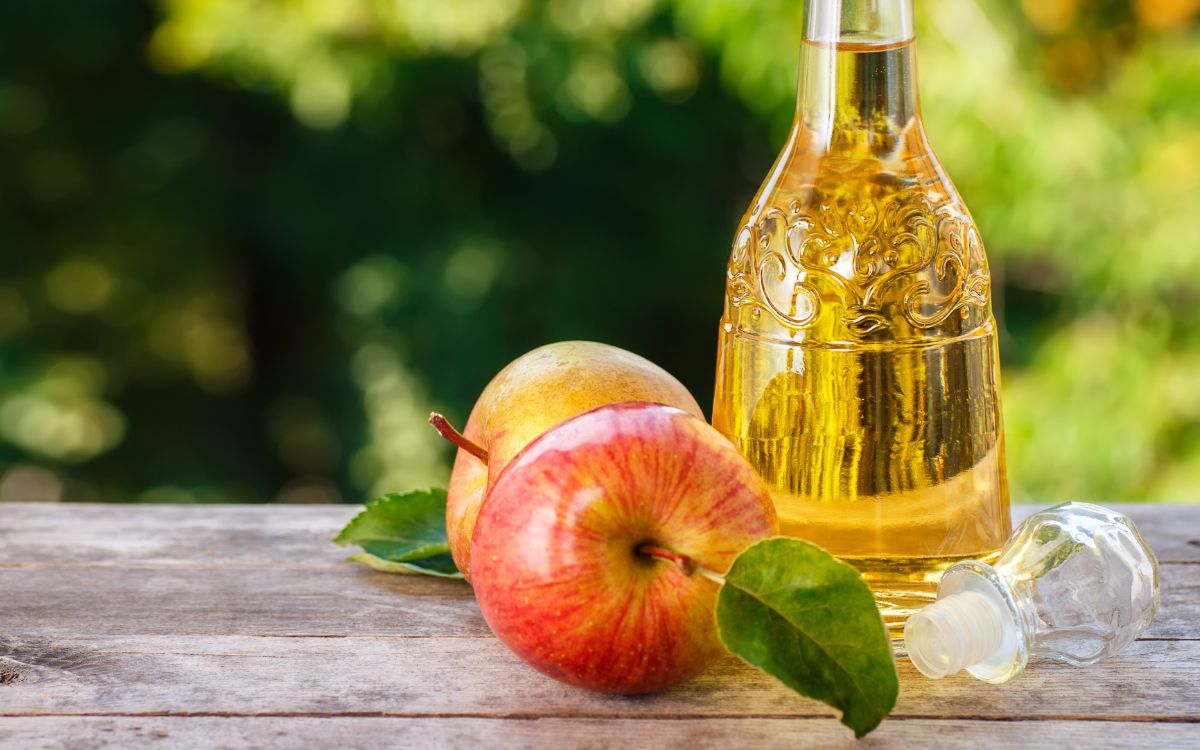Apple Cider Vinegar, also known as ACV, is an incredible substance. This is beneficial not only for your health but also for your garden. Apple Cider Vinegar can do amazing things in your garden, from cleaning tools to keeping pests away from your plants. It’s a must-have, and most people are unaware of it.
Here we will provide all the information needed to know about the benefits and why you should use apple cider vinegar on plants. We are hoping that these will be of help to you.
Top 10 Uses of Apple Cider Vinegar on Garden?
Vinegar can be used for different purposes in your garden. Here are the top uses of apple cider vinegar in your garden.
To Acidify Soils
Plants like Camelia, cranberry, and many similar plants, grow better on Acidic soil. Apple Cider vinegar is acidic in nature and can make the soil acidic. But you can’t just simply pour ACV into the soil. Mix one or half cups of AVC in a gallon of water and apply it to the soil.
Before you do that, check the soil’s pH level, as being too acidic may kill the plant. Also, make sure to check the pH of the soil regularly. You can use a watering can or a spray to do that!
Are you trying to drill holes in your ceramic pots? Well, a process should be followed to get that done. You can read How To Drill A Hole In A Ceramic Pot For Drainage.
As A Fertilizer
It is noted that white vinegar has a more substantial herbicidal impact. However, favorable outcomes that encourage plant growth are seen after using ACV. Plants like blueberries and cranberries can be fertilized using ACV as apple cider vinegar has acidic properties, around 5%.
ACV has quite a lot of essential nutrients for plants. And as mentioned in the last point, mix a half cup or one full cup of ACV in a gallon of water. Mix it well and then apply it to the base of the plant. You can use a spray or a bucket to do so, but make sure not to put it on the leaves as they may burn them.

To Repel Pests
Pests attacking plants are prevalent, and if not treated on time, they can lead to the death of the plant. Apple cider vinegar can help you clean or repel pests from your plants with ease due to the acidic property of ACV. Spraying apple cider vinegar on these pests will melt them away.
Mix half cup ACV in a gallon of water and then spray it on the insects. While you are at it, make sure not to spill any undiluted ACV on the plant, the plant may die if that happens.
To Clean Glass Greenhouse Panes
Greenhouse panes can also be cleaned with apple cider vinegar, and so can your home’s windows. Mix 1/3 apple cider vinegar and 2/3 water to maintain glazing and mold-free window and greenhouse panes.
Furthermore, garden tools that have become dirty or worn out can be cleaned using apple cider vinegar. Scrub the metal instruments with ACV and baking soda paste after soaking them in vinegar for the night. This is an effortless and efficient way to clean your garden tools as they don’t get adequately cleaned that often.
How do you fix a leggy polka dot plant? To fix your leggy polka dot plant, you can read 7 Ways To Fix Leggy Polka Dot Plants (The First is EASY)
To Clean Clay Pots and Planters
ACV can also be used to clean soiled, dated plants and pots. Each pot should be cleaned with apple cider vinegar, and any tough stains should be removed by letting the pots soak in vinegar all night. Maintaining a healthy garden by thoroughly cleaning all of your pots and containers will help stop the spread of plant infections.
As A Flower Conditioner
Apple cider vinegar is a fantastic option if you enjoy keeping flowers in vases around your home. With the aid of ACV, the flowers will remain fresher longer. A liter of water needs to be mixed with two tablespoons of vinegar and two tablespoons of sugar. After that, put the flowers in the vase and pour this mixture inside. You need to make sure you do it every day and cut a small portion of the stem daily.
To Clean Bird Droppings
Spray undiluted apple cider vinegar over the problem area if bird droppings are a problem, then wipe it down with a cloth. They will be able to peel off the floor readily or other surfaces they are trapped on as a result. Additionally, this will eliminate all of the bacteria on that surface.
To learn how to trim dead plant leaves, read How To Trim Dead Plant Leaves (do it the right way!)
To Stop Yellowing of Leaves
Yellowing of plant leaves can also be prevented with the help of apple cider vinegar. This doesn’t happen often but can occur due to the soil’s pH change. To avoid that, mix around three tablespoons of ACV in a liter of water in the soil once a week. Make sure to just water the soil, not the plant or base. This will solve the yellowing of plant leaves issue within a month.
Wrap Up
Apple cider vinegar has many benefits that can be reaped if it is known how to use properly. There are lots of people out there who use apple cider vinegar for various health benefits.
But it can also be used in your garden in various ways other than the ones mentioned here. Just make sure to follow the tips provided here before you start using apple cider vinegar in your garden.

Leave a Reply